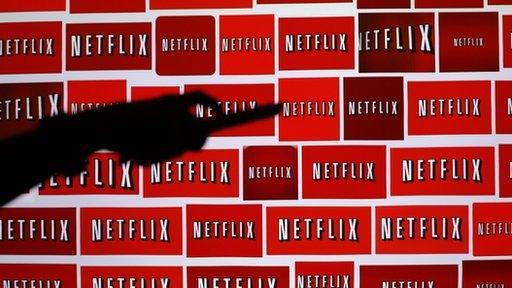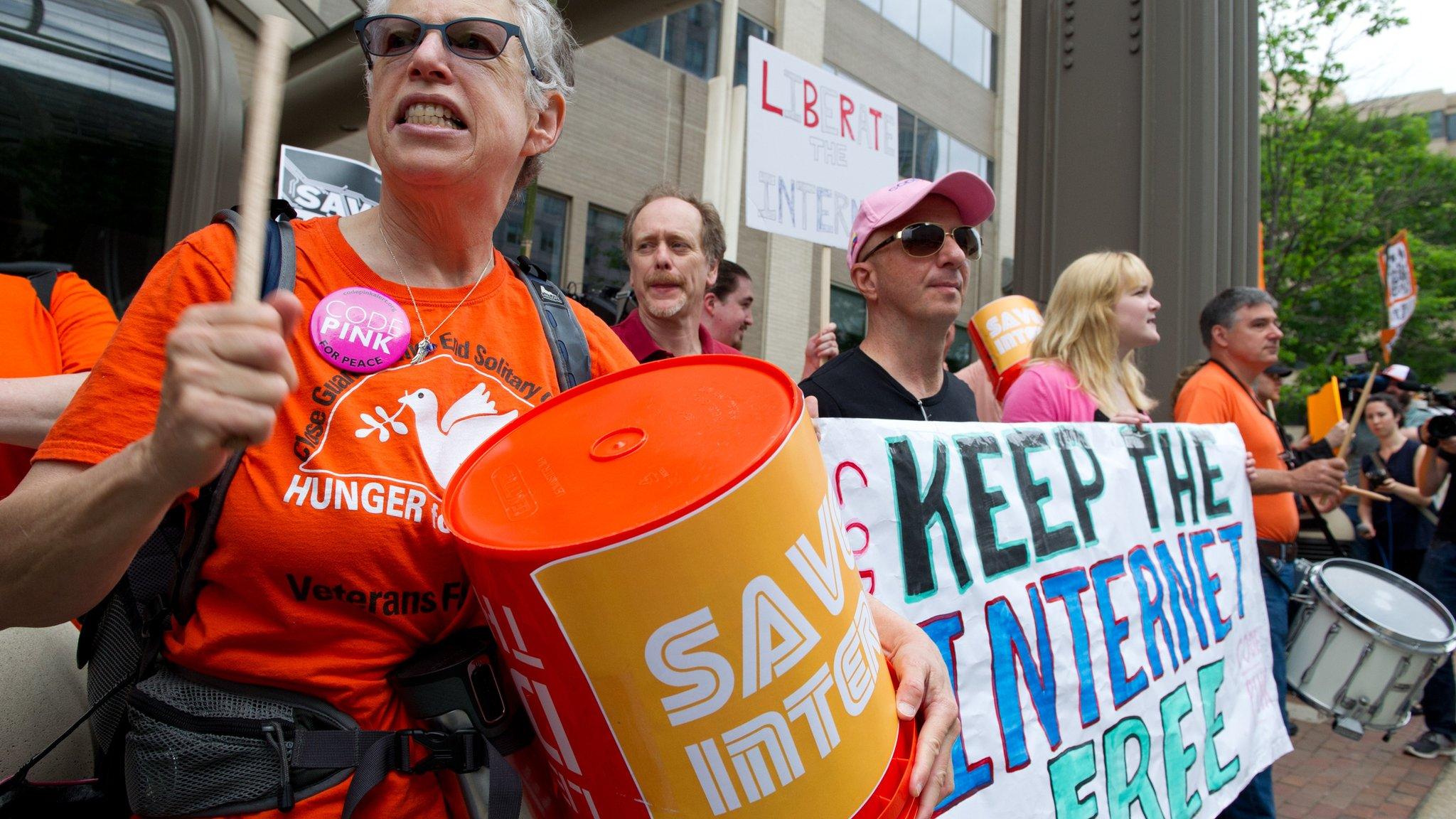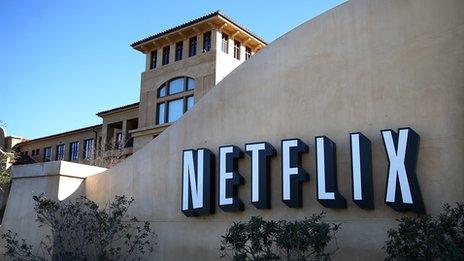Obama backs net neutrality plan
- Published

Many US ISPs want to charge more to deliver data from big content providers such as Netflix
Open net access should be seen as a basic right that all Americans should enjoy, President Obama has said.
He said he supported net neutrality, which means all data travels on cables with the same priority.
There should be no paid prioritisation system that slowed services if they did not pay a fee, he added.
Official plans to end net neutrality and let firms run fast and slow lanes for data have generated wide debate in the US.
More than three million comments about the proposed change were lodged with the US regulator overseeing the debate.
However, the president's intervention has been criticised by internet service providers and some Republican politicians.
"Net neutrality is Obamacare for the internet," said Senator Ted Cruz of Texas, who is aligned with the conservative Tea Party wing of the Republicans.
"It puts the government in charge of determining internet pricing, terms of service, and what types of products and services can be delivered."
Stronger powers
"We cannot allow internet service providers to restrict the best access or to pick winners and losers in the online marketplace for services and ideas," said President Obama in a video statement, external on the issue.
He said net neutrality had been built into the "fabric" of the net since its creation and had been essential to its growth and continuing influence.
He called on the Federal Communications Commission (FCC) to "answer the call" heard in the millions of comments left on its website in support of net neutrality and implement "the strongest possible rules" to protect the principle.
Net neutrality revolves around the idea that ISPs should not be allowed to manipulate the data flowing to their customers.
The FCC is considering changing rules governing data traffic, following a court ruling in January that allowed ISP Verizon to charge to carry traffic from bandwidth-heavy services such as Netflix.
Net neutrality advocates have called on the FCC to reclassify broadband providers as "Title Two telecommunications services" rather than their current status as "information services".
They say this would allow the watchdog to treat the firms as utilities, allowing it to block fast-lane deals.
More time
However, telecoms industry leaders have questioned whether the FCC has the power to do this, and have warned it would create an anti-innovation "government, may I?" culture.
ISPs say they need the ability to charge because without it they will not be able to invest in and update America's net infrastructure.
The FCC has suggested letting ISPs charge for different levels of internet access if they meet a new standard of "commercial reasonableness" that will be judged on a case-by-case basis.
Many net firms object to the idea of charging, saying it will undermine net neutrality and lead to the creation of net fast and slow lanes.
In his statement, President Obama said the FCC should create new rules so "neither the cable company nor the phone company will be able to act as a gatekeeper, restricting what you can do or see online". He said net access should be considered a Title Two service.
Mr Obama did admit that his idea was nothing more than a suggestion and that the FCC had the "ultimate final say" in how it addresses the issue.
FCC chairman Tom Wheeler said President Obama's statement was an "important and welcome" contribution to the net neutrality debate and re-iterated the regulator's opposition to net fast lanes.
He added that the issue was so complex that the FCC would need more time to work out all the legal problems surrounding re-classification of net services. It needed this time, he said, to ensure that the changes would survive legal challenges.
"We must take the time to get the job done correctly, once and for all, in order to successfully protect consumers and innovators online," he said in a statement., external
But some Republicans have signalled they would oppose the FCC following the president's wishes.
"The president's call ... would turn the internet into a government-regulated utility and stifle our nation's dynamic and robust internet sector with rules written nearly 80 years ago for [the] plain old telephone service," said Senator John Thune of South Dakota.
- Published16 September 2014

- Published10 September 2014

- Published30 July 2014
